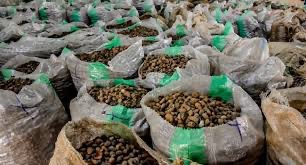
President Bola Ahmed Tinubu has approved a six-month ban on the export of raw shea nuts in Nigeria.
The directive, announced by Vice President Kashim Shettima at a multi-stakeholder meeting in Abuja, aims to strengthen Nigeria’s shea value chain, increase local processing, and generate up to $300 million in revenue annually in the short term.
Vice President Shettima emphasized that the ban is not an anti-trade policy but a pro-value-addition policy intended to supply local factories with raw materials to run at full capacity, create jobs, and transform Nigeria into a global hub for refined shea butter, oil, and derivatives.
Nigeria produces nearly 40% of the world’s shea, yet it accounts for just 1% of the $6.5 billion global market, a situation Shettima described as unacceptable.
The initiative is designed to Industrialize and drive rural development, gender empowerment, and expanded trade opportunities.
The government aims for a ten-fold increase in earnings from the shea sector by 2027. Partnerships have been established to expedite access for Nigerian shea products to markets such as Brazil within three months.
Minister of Agriculture and Food Security, Senator Abubakar Kyari, described the move as long overdue, noting that Nigeria produces about 350,000 metric tonnes of shea nuts annually across 30 states, with the potential to reach 900,000 tonnes.
However, shea processors operate at only 35–50% capacity due to insufficient raw material availability.
The ban is expected to curb informal cross-border trade of raw shea nuts and enhance income for farmers and processors alike, creating sustainable economic growth in the sector.
This policy aligns Nigeria with other West African countries like Ghana and Burkina Faso that have implemented similar bans to strengthen domestic processing and boost export revenues from value-added products.








